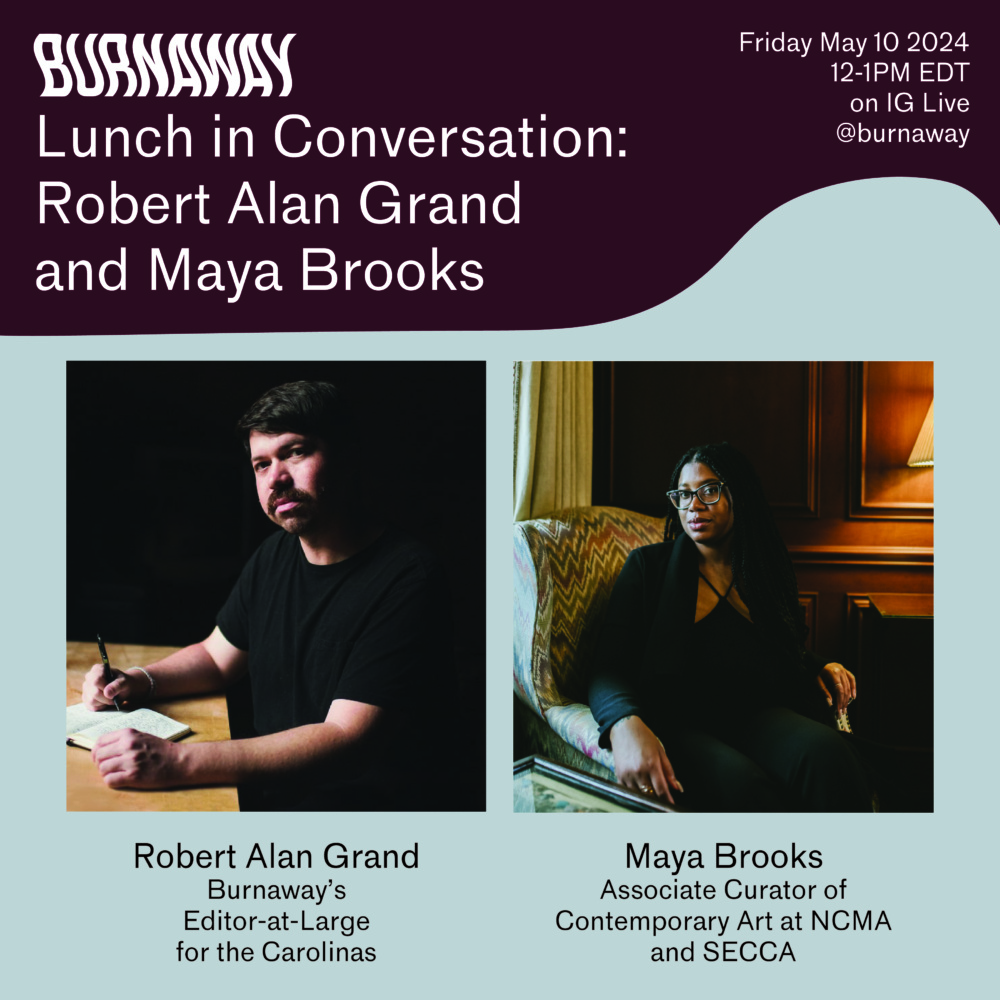
Friday, May 10, 2024 12-1PM EDT
Instagram Live on @burnaway
Announcing a new Burnaway program series: Lunchtime Conversations with our editorial team! Kicking us off on May 10 is Robert Alan Grand, Burnaway’s Carolinas Editor-at-Large. Grand will be in conversation with Maya Brooks, Associate Curator of Contemporary Art at both the North Carolina Museum of Art and the Southeastern Center for Contemporary Art.
This virtual program will take place on Instagram Live on Friday, March 10 at 12PM EDT. Pop in and hear from Robert and Maya while you’re having lunch and enjoying your Friday! This series will continue throughout 2024 and into next year with our editorial team.
About Robert
Robert Alan Grand is a writer, editor, and photographer in Winston-Salem, NC. His writings have appeared in Art in America, The Bitter Southerner, and Garden & Gun, among others, and his photographs of the rural south have appeared in numerous exhibitions and regional publications. Raised in Greenville, South Carolina, he has a BFA in Photography from Watkins College of Art. Before moving back down south, Grand was the co-founder and co-director of Kimberly-Klark, an interdisciplinary project space in Queens, New York. Currently, he is the Director of Marketing for the Sawtooth School of Visual Art and the Carolinas Editor-at-Large for Burnaway.
About Maya
Curator Maya Brooks, originally from Atlanta, Georgia, received her B.A. in Anthropology from the University of North Carolina at Chapel Hill in 2018. She graduated with her M.A. in History from the University of North Carolina at Greensboro in 2020.
Brooks is currently the Associate Curator of Contemporary Art at the North Carolina Museum of Art (Raleigh and Winston-Salem), a position that encourages her passion for examining culture through an artistic lens. Brooks’s professional mission is to provide engaging museum experiences for the public through exhibition curation, interpretation, and design. Overall, she strives to restore access, inclusion, and agency in the museum field for all communities, especially those that have been historically marginalized by cultural institutions.
